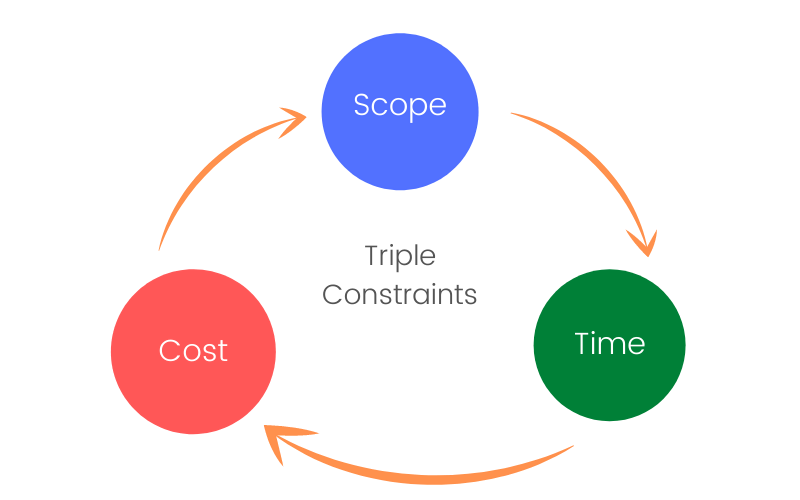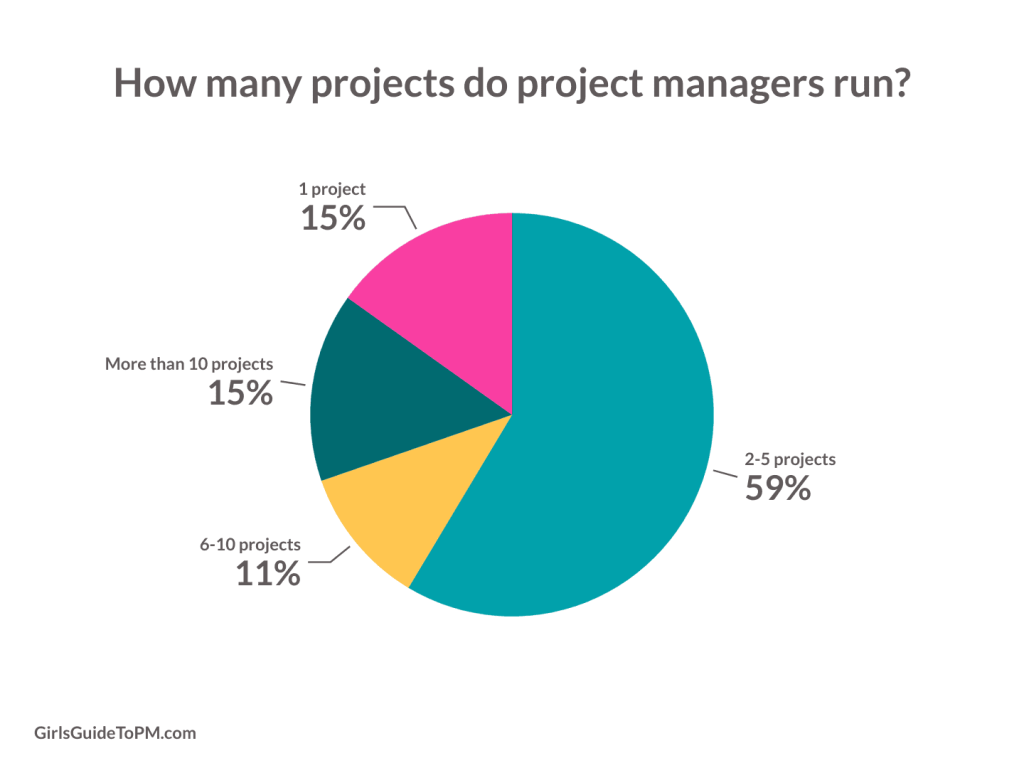Project managers play a pivotal role in ensuring the successful execution of projects, acting as the driving force behind team coordination, resource allocation, and stakeholder management. Their responsibilities span from initiating projects and defining their scope to monitoring progress, mitigating risks, and ultimately delivering the desired outcomes.
Beyond simply managing tasks, project managers are also responsible for leading and inspiring their teams to achieve excellence.
Understanding the Role of a Project Manager
At the heart of every successful project is a competent project manager. They ensure the successful execution of projects, acting as the driving force behind team coordination, resource allocation, and stakeholder management. Their responsibilities span from initiating projects, defining scope to monitoring progress, mitigating risks, and ultimately delivering the desired outcomes. “According to Rebelsguidetopm, 59% of project managers run between 2 and 5 projects. 11% run 6 to 10 projects, and 15% run more than 10 at a time. Only 15% of project managers work on only one project at a time.”
A project manager’s ability to effectively lead and manage teams is crucial for achieving objectives within defined constraints of time, cost, and quality. Beyond task management, a project manager is not only a coordinator but also a leader who inspires and motivates their team to achieve shared goals for project success.
Challenges Faced by Project Managers
Managing a single project presents challenges like scope creep, resource constraints, unrealistic timelines, communication breakdowns, risk management difficulties, team conflicts, stakeholder management issues, quality control problems, change management complexities, vendor/supplier issues, technological obstacles, and regulatory compliance requirements.
When overseeing multiple projects, project managers face additional complexities. Resource allocation and prioritization across projects become critical. Divided attention and context switching can impair productivity and decision-making. Conflicting deadlines and priorities among projects require deft stakeholder expectation management. Communication and coordination with multiple teams/stakeholders necessitate robust processes and effective information flow. Risk and issue management across multiple fronts becomes more demanding.
Leading and motivating multiple teams simultaneously requires exceptional people management and motivation skills to create a positive environment where team members feel engaged across different projects Another major difficulty is the increased workload of documentation and reporting. The project manager has to accurately document progress, track activities, and generate reports for all the concurrent projects, which is a lot of additional work.
Maintaining a proper work-life balance also becomes tough when handling multiple projects together. The long working hours, high-stress levels, and possibility of burnout make it hard to find time for personal life and relaxation.
Skills Required for Leading Multiple Project Teams
To effectively lead multiple project teams, a project manager must possess a diverse set of skills:
Strong leadership and motivation abilities to inspire and guide various teams towards shared goals.
Excellent communication and interpersonal skills to effectively engage with diverse stakeholders.
Exceptional organizational and time management skills to prioritize tasks, allocate resources efficiently, and meet deadlines across multiple projects.
Robust risk management and problem-solving capabilities to proactively address challenges and make informed decisions.
Conflict resolution and negotiation expertise to navigate conflicts and find mutually agreeable solutions.
Effective resource management and delegation skills to optimally allocate resources and assign tasks to the right team members.
Adaptability and flexibility to adjust plans and strategies as circumstances change across multiple projects.
Strategic thinking and sound decision-making abilities to align project efforts with overall organizational objectives.
Relevant technical expertise or domain knowledge, depending on the nature of the projects.
Multitasking and prioritization skills to efficiently switch between tasks and projects while maintaining focus and attention to detail.
Managing vs. Leading Multiple Project Teams
While managing and leading multiple project teams may seem interchangeable, there is a distinct difference between the two. Management focuses on the tactical aspects of project execution, such as planning, organizing, and controlling resources and processes. Leading, on the other hand, involves inspiring, motivating, and guiding teams towards a shared vision and common goals.
Source: Rebelsguidetopm
Effective project managers must strike a balance between managing the technical aspects of projects and leading their teams with a strategic and people-centric approach. They should provide clear direction, foster a collaborative environment, and empower team members to take ownership and contribute their expertise.
By combining strong management skills with effective leadership, project managers can navigate the complexities of overseeing multiple projects, align team efforts, and drive successful project outcomes.
Strategies for Managing and Leading Multiple Projects
As organizations strive to achieve ambitious goals, project managers often find themselves leading and coordinating multiple projects concurrently. To navigate this complexity effectively, adopting a comprehensive approach that combines strategic planning, agile methodologies, and collaborative practices is essential. Here are nine key strategies that can empower project managers to excel in this challenging environment:
1. Establish Clear and Aligned Goals:
Defining clear and specific goals from the outset provides a solid foundation for project success.
Well-articulated objectives ensure that all team members across projects are aligned, focused, and working towards a shared vision, maximizing resource utilization and minimizing redundancies.
2. Embrace Agile Methodologies:
Agile frameworks like Scrum and Kanban are invaluable when managing multiple dynamic projects.
These methodologies foster adaptability, collaboration, and iterative development, enabling project managers to respond swiftly to changing requirements, priorities, or resource constraints across various initiatives.
3. Delegate and Empower Team Members:
Effective project managers understand the importance of delegation and empowerment.
By entrusting capable team members with specific tasks or project components, workloads are distributed optimally, fostering a sense of ownership and personal growth within the teams.
4. Facilitate Cross-Team Collaboration:
Encouraging collaboration and knowledge-sharing among project teams can yield significant benefits.
Regular cross-team sessions facilitate the exchange of best practices, lessons learned, and successful strategies, fostering a culture of continuous learning and enabling the identification of potential synergies.
5. Implement Robust Prioritization Techniques:
With multiple projects vying for attention, prioritization becomes paramount.
Employing structured prioritization techniques, such as the Eisenhower Matrix or RICE scoring, allows project managers to objectively assess and rank project priorities based on factors like urgency, strategic importance, and resource constraints.
6. Maintain Transparency and Open Communication:
Transparency in project communication builds trust, alignment, and accountability among stakeholders and team members.
Establishing clear and consistent communication channels ensures seamless information exchange, enabling informed decision-making and effective project execution.
7. Monitor Progress Continuously:
Regularly monitoring project progress against predefined milestones and deadlines is crucial.
This practice allows for early identification of risks, issues, or deviations, enabling timely interventions to keep projects on track and mitigate potential setbacks.
8. Cultivate a Culture of Innovation:
Fostering a culture of innovation within project teams promotes creativity, continuous improvement, and the adoption of cutting-edge practices.
This approach not only drives immediate project success but also contributes to long-term organizational growth and sustainability.
9. Leverage Project Management Tools:
Implementing robust project management software solutions like Nimble’s Project Management solution can streamline coordination, facilitate real-time collaboration, provide visibility into progress, and enable data-driven decision-making.
These tools optimize workflow, enhance productivity, and empower project managers to focus on strategic leadership and team cohesion.
Conclusion
Leading and managing multiple project teams is a challenging endeavor that requires a diverse set of skills, ranging from technical expertise to strategic thinking, communication, and people management. Project managers must be adept at navigating the complexities of resource allocation, risk management, stakeholder engagement, and team coordination across various projects.
By developing and honing the essential skills, implementing robust processes, and fostering a culture of collaboration and continuous improvement, project managers can effectively lead and guide multiple teams towards successful project delivery.
Also, by leveraging the power of a robust project management solution, project managers can focus on strategic leadership, fostering team cohesion, and driving successful project outcomes, while the platform takes care of the intricate operational aspects seamlessly.









